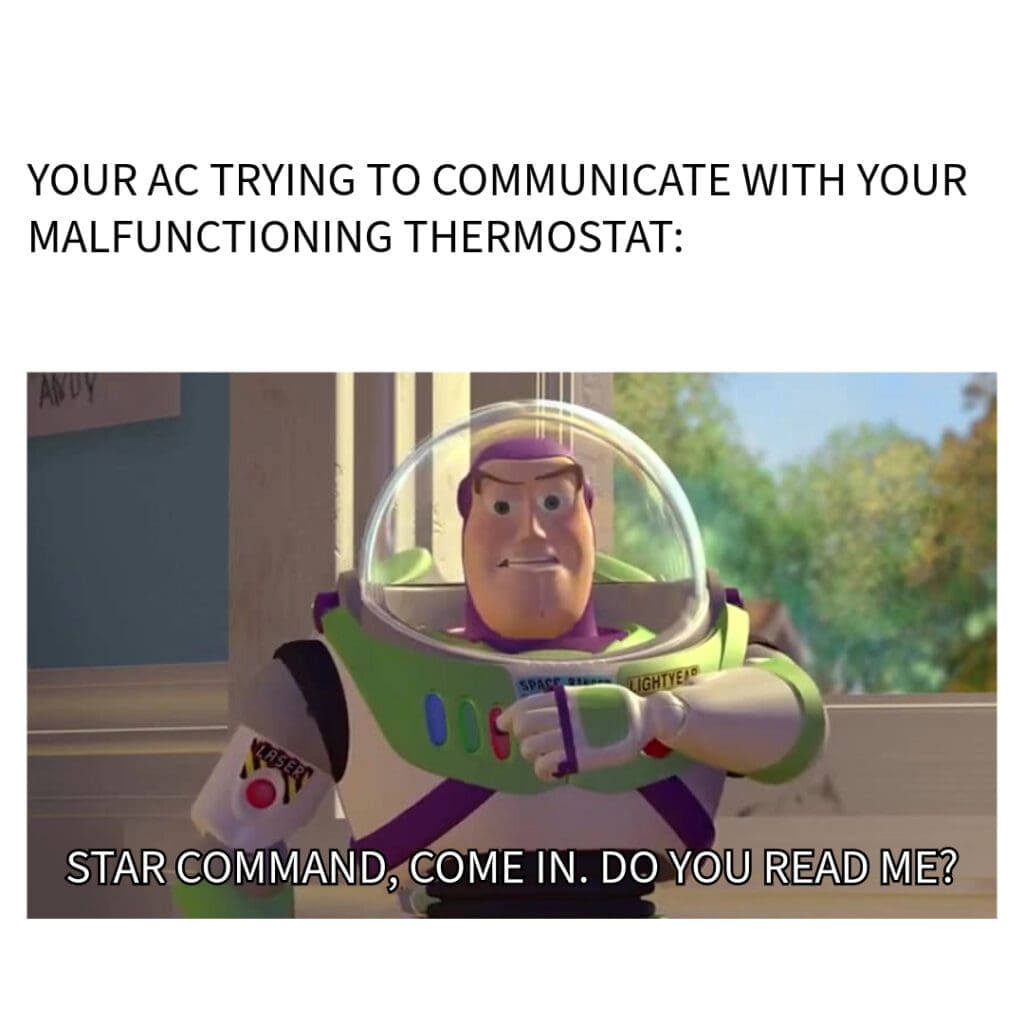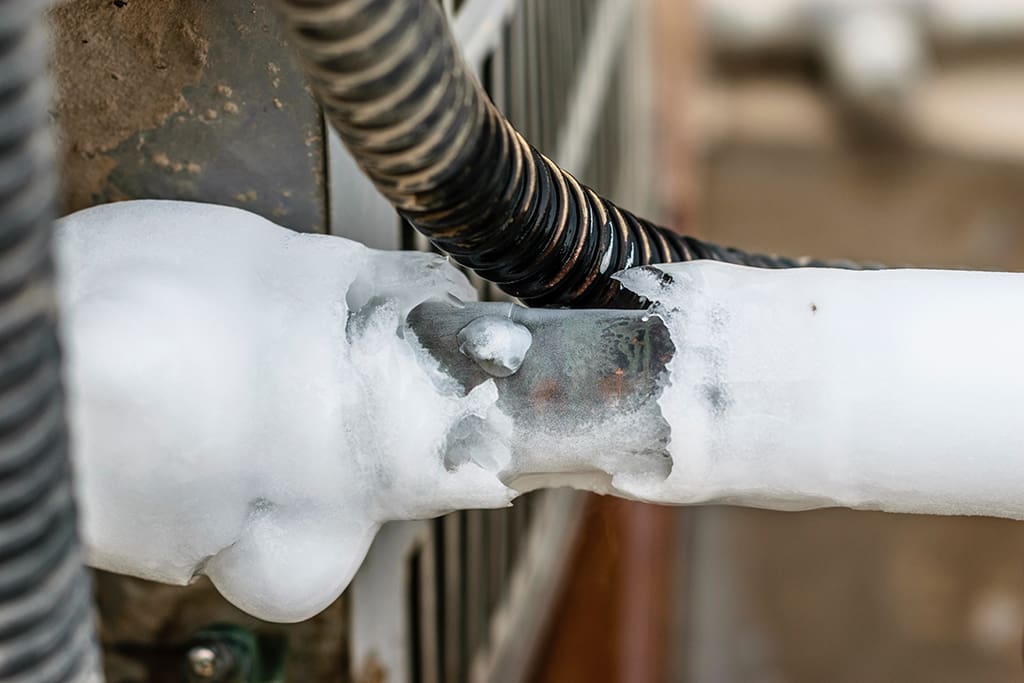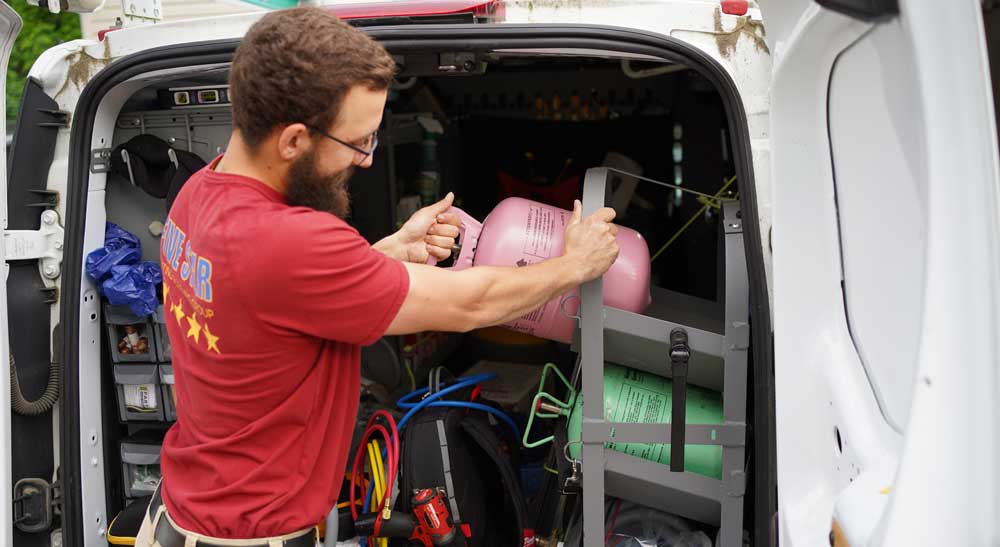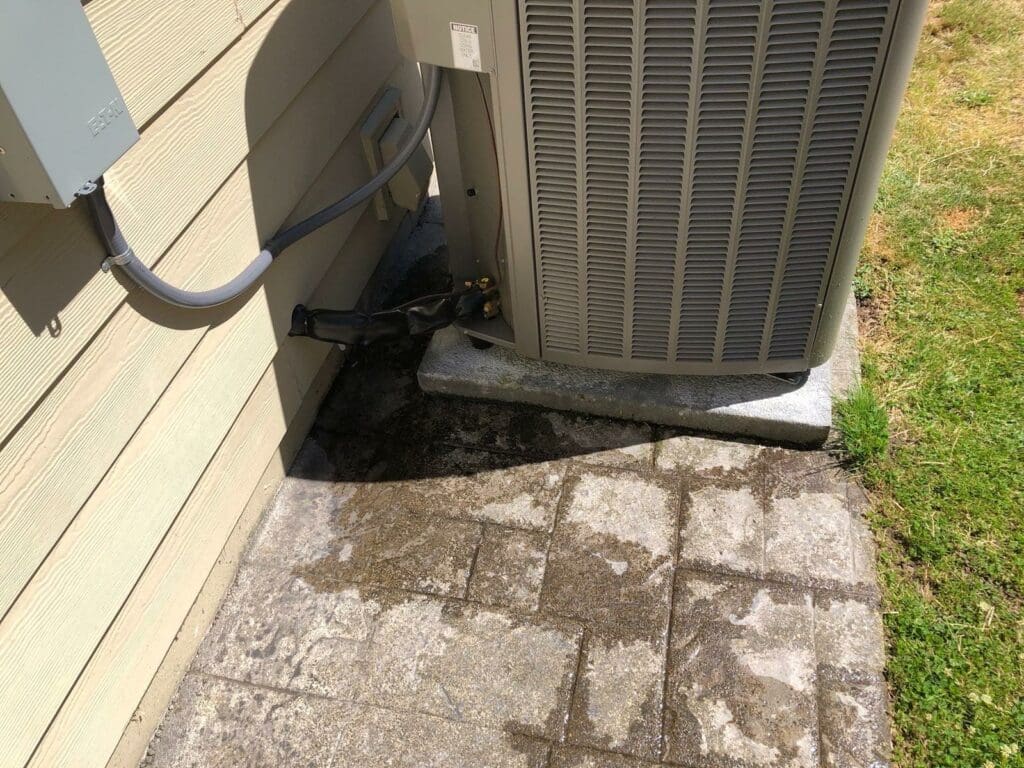Let’s be honest. Ohio’s summers can be hot! So, the chances that your AC has been working overtime to keep up with combatting the summer heat are highly likely. Unfortunately, when your AC kicks into high gear, this can lead to your AC leaking water. Naturally, we understand how alarming this can be, but your Five Star Home Services professionals are here to help you find out what’s going on.
Reasons Why Your AC May Be Leaking:
- A Malfunctioning Thermostat
- A Frozen Evaporator Coil
- A Clogged Condensate Drain
- An Old or Damaged Condensate Drain Pan
- Low Refrigerant Levels
- A “Sweating” Condenser
📁 Download our 2024 AC Buying Guide ➡️
1. A Malfunctioning Thermostat
Your thermostat controls just how cold the evaporator coils need to get to reach the temperature you have set for your home. When excess water condenses on the evaporator coil, it can start to leak. So, if the thermostat is failing, your AC will, too.
Think of your thermostat as the “mothership” of your HVAC system. If the mothership goes down, the whole fleet goes down with it. When a thermostat malfunctions, it cannot properly communicate with your HVAC system; it lets your AC know when to turn on and off, push out air, etc. Many system issues are attributed to a faulty thermostat. The source of your air conditioner problems may simply lie in checking the thermostat.

Begin your troubleshooting by first inspecting the thermostat. If your AC is leaking water, you’ll want to verify that the settings on your thermostat are correct. Check if your thermostat is responsive, and you can still adjust the settings accordingly. If not, the thermostat may need extra attention, like fresh batteries (if applicable), or there could be a faulty wiring issue, in which case you will want to contact a licensed technician.
2. A Frozen Evaporator Coil
It’s important to note that one of the top reasons for ACs leaking water is the evaporator coil freezing. This often occurs when the air filters become too clogged and not enough air is blown over the coils. The evaporator coils can get so cold that they freeze over, and water will start to drip off as a result of this process.
You can fix this issue by:
- Checking the Air Filters: Make it a point to check on your HVAC air filters. Although they are recommended to be swapped out every 1 to 3 months, it never hurts to double-check and ensure that a clogged air filter is not the culprit. You might just be able to resolve your leaky air conditioning problems with a fresh air filter!
- Changing Your Thermostat Settings: You’ll need to get that frozen evaporator coil thawed first before you can get the drippage or leaking to stop completely. You can achieve this by raising the thermostat temperature by a few degrees to help the thawing process. (Just keep in mind that if your entire unit is frozen up, it would in your best interest to turn off the cooling settings and turn on the fan instead.)

3. A Clogged Condensate Drain
Your condensate drain could be clogged. The condensate drain is the pipe that conveys the water from the drain pan to the outside. So, if it gets blocked, the water that is supposed to be draining can start to back up and leak outside of the drain pan.
We don’t recommend troubleshooting this issue unless you want to risk causing damage to your pipes or system. A clogged condensate drain can lead to different AC malfunctions, but it is a simple fix for a qualified and licensed technician.
4. An Old or Damaged Condensate Drain Pan
Now, on to the condensate drain pan. Since the drain pan collects the water run-off from the evaporator coil while it cools the air, if the drain pan is worn out or damaged, it can result in water leakage on the floor.
Troubleshooting this issue is a simple fix. If this is the case for you, you simply will need to replace the old or damaged drain pan with a new one. Just make sure you follow the manufacturer’s instructions carefully. If you’re unsure about performing these specific troubleshooting tasks, we’d be happy to help.
5. Low Refrigerant Levels
When the cooling refrigerant for your air conditioner decreases, the pressure inside your air conditioner also decreases. The evaporator coils may freeze as a direct result, leading to an unwelcome and wet mess. A few signs to be on the lookout for regarding low refrigerant are:
- Hissing or bubbling sounds coming from the AC unit
- Ice on the evaporator coils
- The AC is not blowing out “cold” air
- Water leakage
The best way to get this fixed as soon as possible is to call a licensed technician, as they will have access to the right refrigerant for your air conditioner and the proper equipment to refill it safely.

6. A “Sweating” Condenser
Did you know that your air conditioner can “sweat?” This is simply condensation forming on the unit due to warm or humid air coming into contact with the cool exterior of the AC unit. As a result, this creation of excess moisture or water droplets on the unit can lead to the water running off the AC and causing it to look like there is a leak from the unit itself.
While mild condensation shouldn’t raise too much concern, (it happens) an excessively “sweating” unit should be looked at by a professional as soon as possible. The last thing you want is water damage on your hands or even a damaged AC due to an issue that has been going on for some time.

We value your safety and comfort! So, if you are still dealing with an air conditioner leaking water and cannot quite pinpoint why, please don’t hesitate to call us. We would feel honored to be entrusted to provide you with our five-star customer service.
You can beat the heat with the help of your Five Star Home Services family! Call us today at (833) 405-8009 for all your home service needs.

